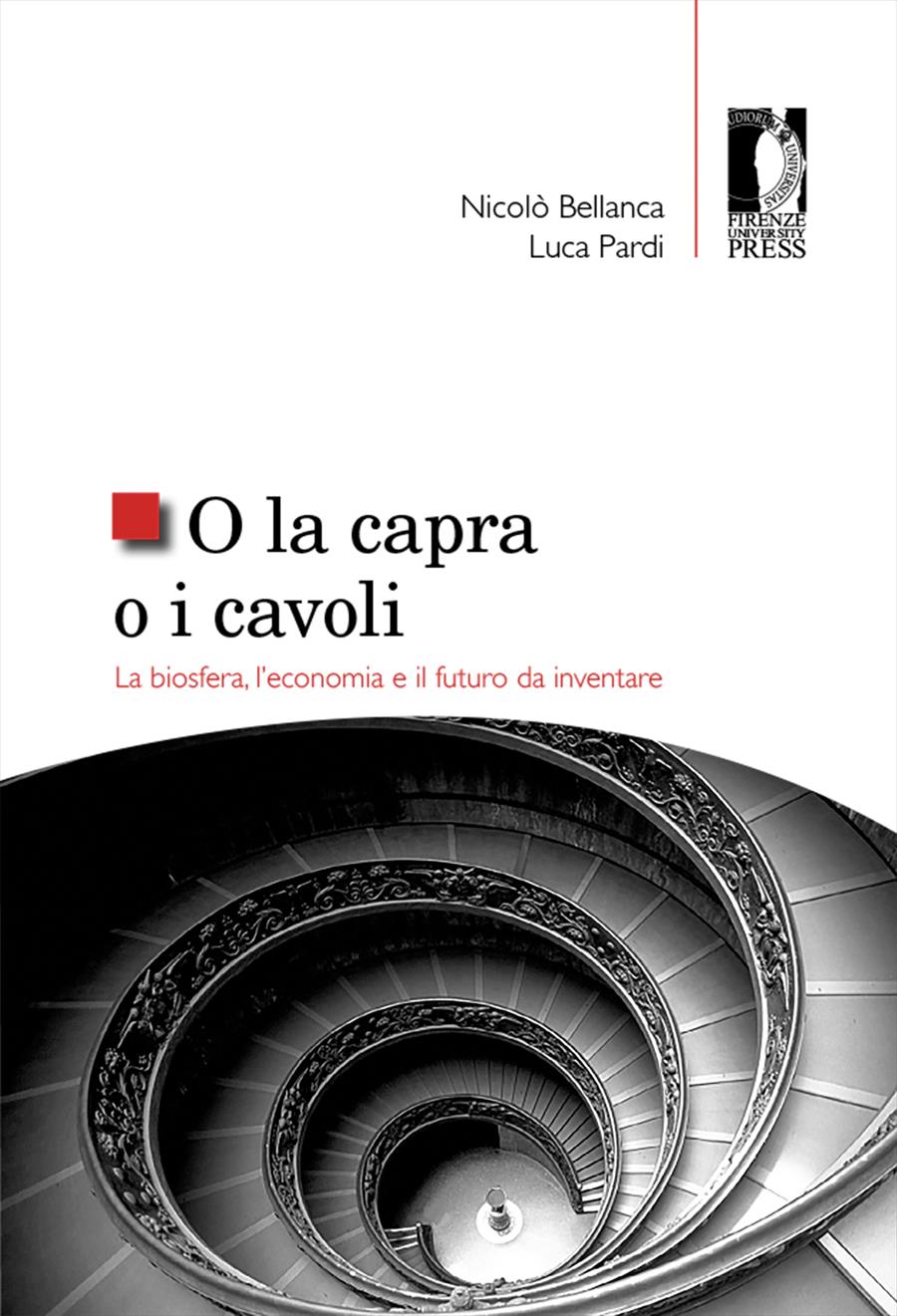- O la capra o i cavoli
- Nicolò Bellanca, Luca Pardi
Limiti alla crescita, universalismo e progresso sociale
- Nicolò Bellanca
- Luca Pardi
- © 2020 Author(s) |
- CC BY 4.0
- DOI: 10.36253/978-88-5518-195-2.11
The paradigm of limits to growth has been legitimized by important contributions, both scientific and philosophical. Although it has oriented the political program of the major ecological movements, its weakness is to be "negative" (placing constraints) and paternalistic (preaching to others what it would be right to do). We evaluate the weight of these criticisms by examining Ingrid Robeyns' recent refined version of it, according to which it would be efficient and right to put an upper limit on income and wealth. We then move on to criticize the universalist ideology that has always permeated the ecological paradigm, arguing that, ultimately, Humanity will be able to awaken and jointly face the ongoing crises. Evolutionary biology helps to account for the weakness of this approach: the human species reproduces by mixing conflict and cooperation on an individual and group level. Humans have always been divided into many tribes, which can collaborate, but which sometimes exist as they defend and affirm borders and identities. It is rather empty to imagine the ecumenical convergence of all humans on the same order of priorities. Finally, we distinguish between growth and social progress. We try to formulate a definition of progress that constitutes the premise for a more adequate narration of the story of our biosphere.
- Keywords:
- Limitarism,
- ecologism,
- eusociality,
- polyarchic society,
- social progress,
- evolutionary biology,
University of Florence, Italy - ORCID: 0000-0002-3809-3455
CNR-IPCF, Institute for Chemical-Physical Processes, Italy - ORCID: 0000-0002-6870-1490
- S. Bartolini, La grande decelerazione. Come vivere meglio e salvare il pianeta, Abòca, Milano, in corso di stampa.
- N. Bellanca, Isocracy, Palgrave Macmillan, London 2019.
- J. Cepelewicz, L’elusivo calcolo dell’altruismo e la selezione parentale, 2018, <https://www.lescienze.it/news/2018/04/21/news/selezione_parentale_cooperazione_eusocialita_hamilton-3946857/> (09/20).
- J. Haidt, Menti tribali, Codice, Torino 2013 (ed. orig. 2012).
- L. Margulis, Symbiotic Planet: A New Look at Evolution, New York, Basic Books 1998.
- D. H. Meadows et al., I limiti della crescita: rapporto del System Dynamics Group, Massachussetts Institute of Technology (MIT), per il progetto del Club di Roma sulla difficile situazione dell’umanità (ed. orig. 1972), LuCe, Pisa 2018.
- G. Monbiot, Embarrassment of Riches, 2019, <https://www.monbiot.com/2019/09/20/embarrassment-of-riches/> (09/20).
- M. Nowak e R. Highfield, Supercooperatori, Codice, Torino, 2012 (ed. orig. 2011).
- S. Okasha, Biological Altruism, “The Stanford Encyclopedia of Philosophy” (Summer 2020 Edition), <https://plato.stanford.edu/archives/sum2020/entries/altruism-biological/> (09/20).
- T. Pievani, Evoluti e abbandonati, Einaudi, Torino 2014.
- S. Pinker, The False Allure of Group Selection, 2012, <https://www.edge.org/conversation/steven_pinker-the-false-allure-of-group-selection> (09/20).
- I. Robeyns, Having Too Much, in J. Knight e M. Schwartzberg (a cura di), Wealth: NOMOS LVIII, New York University Press, New York 2017, pp. 1-44.
- I. Robeyns, Wellbeing, Freedom and Social Justice. The Capability Approach Re-Examined, Open Book Publishers, Cambridge 2017.
- I. Robeyns, What, if Anything, is Wrong with Extreme Wealth?, “Journal of Human Development and Capabilities”, 20(3), 2019, pp. 251-266.
- S. West et al., Social social semantics: altruism, cooperation, mutualism, strong reciprocity and group selection, “Journal of Evolutionary Biology”, 20(2), 2007, pp. 415-32.
- E. O. Wilson, La conquista sociale della terra, Raffaello Cortina editore, Milano, 2013 (ed. orig. 2012).
Chapter Information
Chapter Title
Limiti alla crescita, universalismo e progresso sociale
Authors
Nicolò Bellanca, Luca Pardi
Language
Italian
DOI
10.36253/978-88-5518-195-2.11
Peer Reviewed
Publication Year
2020
Copyright Information
© 2020 Author(s)
Content License
Metadata License
Bibliographic Information
Book Title
O la capra o i cavoli
Book Subtitle
La biosfera, l’economia e il futuro da inventare
Authors
Nicolò Bellanca, Luca Pardi
Peer Reviewed
Number of Pages
210
Publication Year
2020
Copyright Information
© 2020 Author(s)
Content License
Metadata License
Publisher Name
Firenze University Press
DOI
10.36253/978-88-5518-195-2
ISBN Print
978-88-5518-194-5
eISBN (pdf)
978-88-5518-195-2
Series Title
Studi e saggi
Series ISSN
2704-6478
Series E-ISSN
2704-5919
